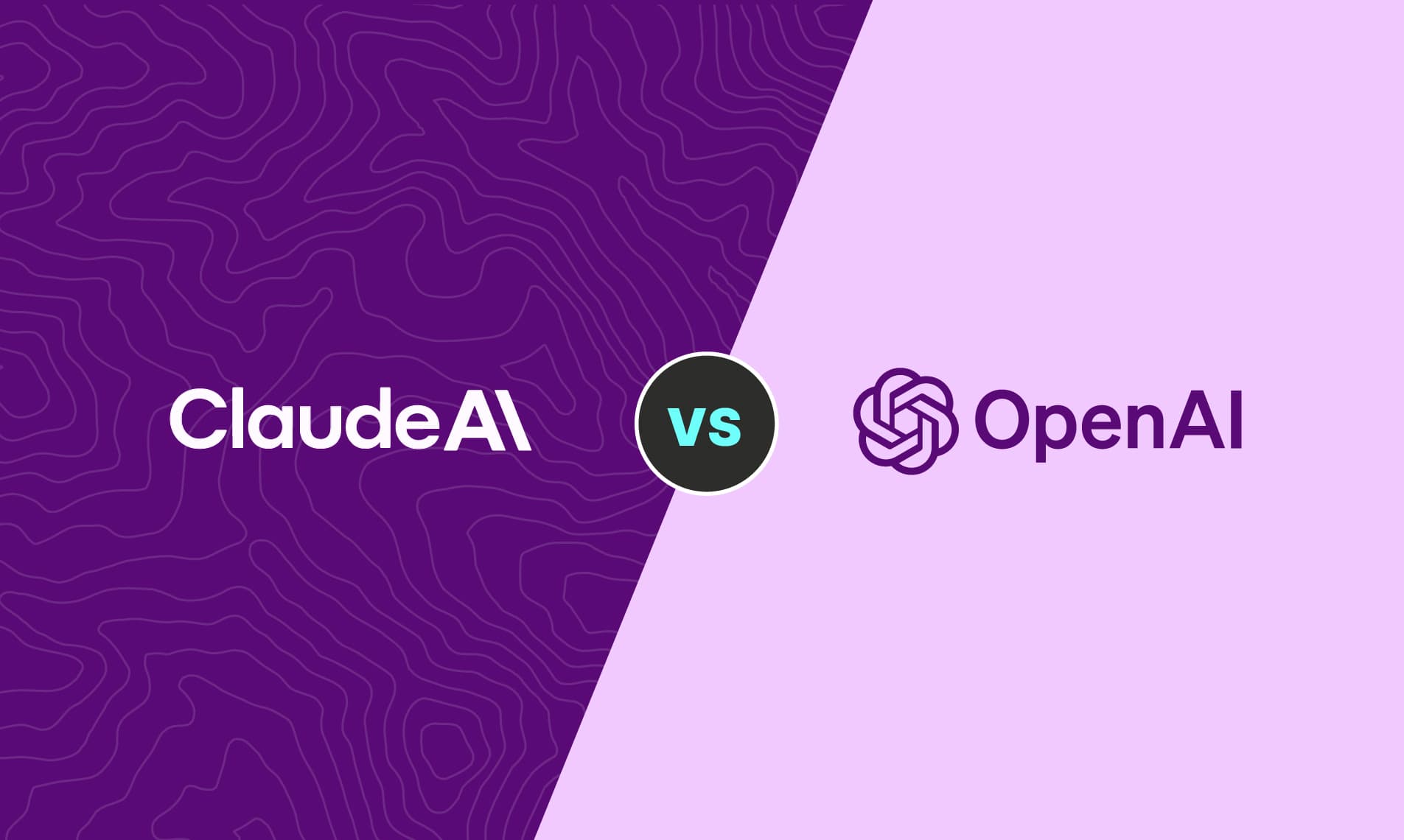Claude vs OpenAI: Pricing Considerations
Claude is outranking OpenAI's GPT models in several benchmarks—see how it compares with regards to pricing.

Updated June 25, 2024 to reflect recent updates.
When Anthropic announced Claude 3, which was at the time the newest model in the Claude family, in typical AI fashion, speculation broke out on how Claude 3 Opus compares to GPT-4. A few months later, the newest Claude model is Claude 3.5 Sonnet, which is competing with OpenAI’s newest model, GPT-4o. Benchmarks are showing Claude as a serious competitor, however, there are other factors to consider, such as price and functionality on a service and model level.
Note—we’ve previously touched on Claude vs OpenAI within our Amazon Bedrock vs Azure OpenAI blog but this blog will go more in-depth on Claude and OpenAI GPT models specifically.
Anthropic Claude
In 2023, Claude made waves by being the first to introduce the 100k context window during a time when the other prominent model limits were around 32k. However, it received flack in the past due to censorship issues that were prioritized for improvement with Claude 3. The response to Claude 3 has been extremely positive, with users noticing significant improvements to the prior content moderation and benchmarks showing Claude 3.5 Sonnet to be one of the top-performing language models across a variety of tasks. Claude models particularly excel at writing, summarizing, and coding.
One way to access the Claude models (that we will be focusing on in this blog) is through Amazon Bedrock. Bedrock is a marketplace of many API models from different providers, including Anthropic's Claude, where Amazon provides additional APIs and security.
Claude Models
Table of supported Claude models (as of 6/25/2024).
OpenAI GPT
OpenAI's GPT models are widely used, with many users and benchmarks still considering them the best, however, as we saw in our Gemini vs OpenAI blog, competition has been quickly catching up. Still, GPT-4o is widely regarded as the most advanced and capable language model available today.
Azure and OpenAI are closely related. Microsoft has a strategic partnership with OpenAI, which includes Azure being the exclusive cloud provider for OpenAI's models and services. This close collaboration allows Azure to offer seamless integration and access to the latest OpenAI models (with additional features and security).
GPT Models
Table of supported GPT models (as of 6/25/2024).
Claude vs OpenAI GPT Models Functionality
See here for a service-level comparison of Azure and Bedrock documentation/community support and no-code playgrounds. See below for the model-level comparison:
- Max Tokens: As we mentioned previously, Claude was the first to get to a 100k token limit. Then, OpenAI leapfrogged them with an impressive 128k max. Claude now has the lead with a 200k max. That corresponds to an impressive 500 pages of information. With the continuous rapid advancements, such as Gemini's 1M-10M context window, we expect these limits to keep increasing even more.
- Supported Regions: This applies specifically to Bedrock and Azure. Availability may be model and feature-specific and many regions are not accounted for. See Bedrock and Azure to see if your region is supported.
- Supported Languages: The GPT models are optimized for English, however, they are usable with other languages. Claude supports multiple languages including English, Spanish, and Japanese. Neither have a public list of all available languages.
- Training Data Date: According to Anthropic, the Claude 3 models were trained up to August 2023. GPT-3.5 Turbo and GPT-4 were trained up to September 2021 and the GPT-4 Turbo versions were trained until April 2023.
Claude Pricing
With Bedrock, you have two options: On-Demand and Provisioned Throughput. Fine-tuning is not available. Prices are shown for the US East region.
On-Demand
The non-committal, pay-by-usage option. Charges are per input token processed and output token generated.
Claude On-Demand pricing table. (Updated 6/25/24).
Provisioned Throughput
You have the option to buy model units (specific throughput measured by the maximum number of input/output tokens processed per minute). Pricing is charged hourly and you can choose a one-month or six-month term. This pricing model is best suited for “large consistent inference workloads that need guaranteed throughput.”
Claude Provisioned Throughput pricing table. (Updated 6/25/24).
OpenAI GPT Pricing
Charges for GPT models through Azure are fairly simple. It is a pay-as-you-go, with no commitment. There are additional customization charges. Price varies per region and is shown for the US East and US East 2 regions (GPT-4 Turbo and fine-tuning are not available in US East).
Pay-As-You-Go
Charges vary for different model types and contexts.
OpenAI GPT model pricing table (as of 6/25/2024).
Fine-Tuning
Fine-tuning charges are based on training tokens and hosting time.
OpenAI GPT fine-tuning pricing table (as of 6/25/2024).
Pricing Comparison Claude vs OpenAI
Based on benchmarks, user feedback, and use cases the most comparable models are:
Claude 3 Sonnet vs GPT-4
Claude 3 Sonnet is much less expensive than GPT-4 and has similar use cases and benchmarks. Its input tokens are priced 95% lower than GPT-4's and its output tokens are priced 87.5% lower.
Claude 3 Opus vs GPT-4 Turbo
Claude 3 Opus is relatively expensive, the output tokens in particular are 150% more expensive than GPT-4 Turbo's. GPT-4 Turbo is the more economical choice, especially for use cases requiring a large number of output tokens.
Claude 3.5 Sonnet vs GPT-4o
The two most recent and advanced models Claude 3.5 Sonnet and GPT-4 Turbo, are both more advanced and more cost-effective than their predecessors. While Claude 3 Opus was notably more expensive than GPT-4 Turbo, the pricing structure for these newer models is much more competitive. The price per output token is the same while Claude 3.5 Sonnet has a 40% lower cost for input tokens.
Conclusion
Newer models competing for the lowest price while advancing their functionalities is a good sign for end-users. Claude 3.5 Sonnet and GPT-4o are both advanced and capable models, leaving the choice largely dependant on factors such as cost, availability, context window, and more.
Sign up for a free trial.
Get started with tracking your cloud costs.



